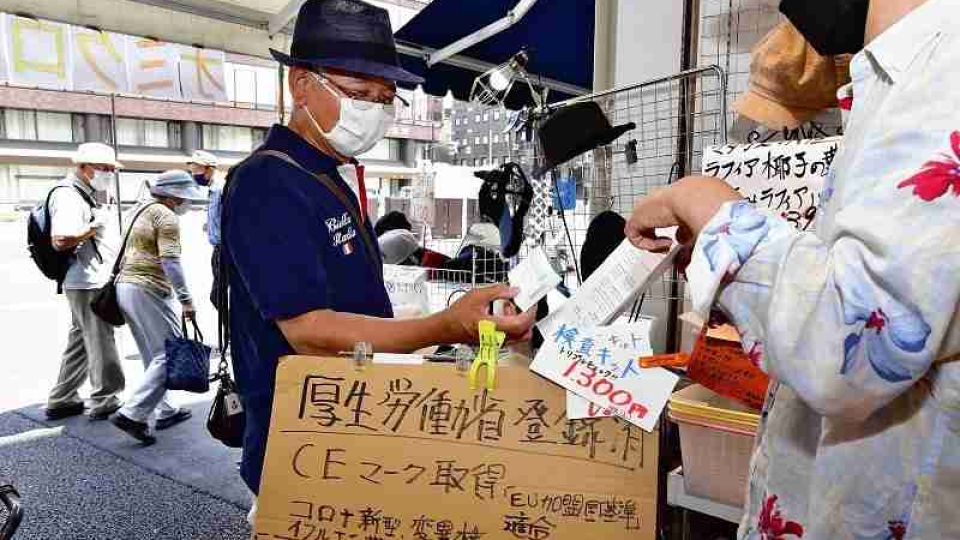August 23, 2022
TOKYO – The Health, Labor and Welfare Ministry plans to create a system to centrally monitor the production and distribution of drugs and COVID-19 antigen test kits, as supply and demand have become tight amid the pandemic.
In the event of supply shortages, pharmaceutical companies and wholesalers will be required to report online, enabling medical institutions and pharmacies to see all the information in one place. The ministry aims to prevent them from stocking up on drugs and also to encourage them to switch to alternatives.
The ministry will incorporate about ¥140 million in its budgetary request for fiscal 2023, a figure that includes the cost of building the system.
Amid the pandemic, focus has converged on certain drugs and test kits that were talked about on the internet and other platforms. In late July, some shipments were suspended of the antipyretic drug Calonal, which is said to cause few side effects and be safe for children.
The hoarding of the product by pharmacies and others spurred supply concerns, and the switch to alternative antipyretics did not go smoothly.
As to the COVID-19 test kits, there was a rush of orders for well-known products, and even though there were enough test kits as a whole, many medical institutions were unable to test those who were likely to have been infected because they lacked kits.
When supply concerns occur, the health ministry currently inquires with pharmaceutical companies and others about shipment volumes and future prospects, and releases the information online. But because this is a manual process, the transmission of information tends to be delayed.
For wholesalers, unable to grasp the overall picture of production volume, including for alternative medications, it is difficult to encourage clients such as medical institutions and pharmacies to switch to alternatives.
Under the new system, the health ministry will ask domestic drugmakers, medical device manufacturers, and wholesalers to report online about production quantities, shipments and stocks, as well as the inventory levels of medicines and devices that are in short supply and their substitutes. Based on such information, the ministry will request that they take necessary measures, including an increase in production.
In addition, the ministry will create a new website to share information concerning the supply of these products. By enabling medical facilities and pharmacies to grasp the most up-to-date information, the ministry aims to prevent the hoarding of certain products, and facilitate the switch to alternative products.
Supply concerns occur not only during epidemics such as that of the novel coronavirus, but also when there is a scandal involving drugmakers. Since 2020, there have been cases of illicit production of generic drugs by leading drugmakers. Even today, shipments of a large number of generic drugs have been suspended or adjusted.
The ministry hopes to make use of the new system not only for contingencies such as the prevalence of an infectious disease but also in the event of ordinary supply concerns.
The ministry expects to start operating the new system within fiscal 2023. The construction and management of the system will be outsourced to private business operators. In preparation for its introduction, the ministry also aims at submitting to the Diet as early as possible the bills to revise relevant laws, which will make it obligatory for pharmaceutical companies and wholesalers to report to the ministry.

